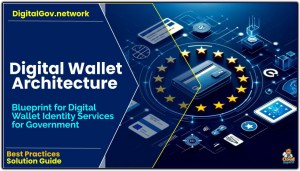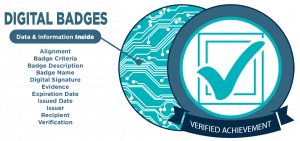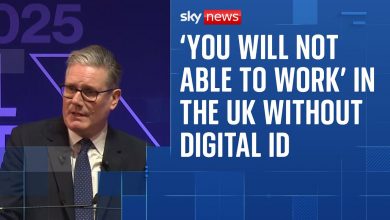From Classroom to Career: Utilizing Digital Credentials to Unify Education and Employment
By bridging the gap between classroom and career, digital credentials can empower individuals, strengthen industries, and drive economic growth for years to come.
 The UK is poised to transform how individuals manage and share their qualifications through its plans for a Digital Wallet.
The UK is poised to transform how individuals manage and share their qualifications through its plans for a Digital Wallet.
A key use case for this initiative lies in the adoption of digital academic credentials—verifiable, secure, and portable records of educational achievements.
By integrating these credentials into a national Digital Wallet framework, the UK can bridge the gap between education and employment, streamlining hiring processes, enhancing trust, and boosting workforce mobility.
The Case for Digital Academic Credentials
Traditional academic credentials, such as paper-based degrees and certificates, are often cumbersome to share, verify, and store. They are prone to loss, fraud, and inefficiencies in validation, creating friction for both job seekers and employers.
Digital credentials—secure, blockchain-based, or cryptographically verified records of academic achievements—address these challenges by offering a standardized, tamper-proof, and easily shareable format.
Transforming the Labour Market
The UK’s Digital Wallet, as part of its broader digital identity strategy, aims to create a secure ecosystem where individuals can store and share verified personal data, including qualifications, with employers, educational institutions, and other stakeholders.
By prioritizing academic credentials within this framework, the UK can unlock significant benefits:
- Streamlined Hiring Processes: Employers can instantly verify qualifications, reducing time-to-hire and minimizing the risk of fraudulent credentials.
- Enhanced Accessibility: Job seekers, particularly those from disadvantaged backgrounds, can seamlessly share their qualifications with employers, leveling the playing field.
- Lifelong Learning Support: Digital credentials can include micro-credentials, certifications, and continuous professional development, aligning education with evolving workforce demands.
- Global Mobility: Standardized digital credentials facilitate cross-border recognition of qualifications, supporting the UK’s position as a global hub for talent.
By enabling secure, verifiable, and portable qualifications, the Digital Wallet can streamline hiring, reduce fraud, support lifelong learning, and promote equity in the labor market. As the UK advances its digital identity strategy, prioritizing academic credentials within the Digital Wallet will not only boost employment outcomes but also position the nation as a leader in the global digital economy.
Accelerating Recruitment
Manual verification of qualifications can take days or weeks, delaying recruitment and increasing costs. With digital credentials, employers can verify qualifications in seconds via the Digital Wallet’s API integrations. This efficiency is particularly valuable in high-demand sectors like technology, healthcare, and engineering, where the UK faces skills shortages.
A 2024 study by the Confederation of British Industry (CBI) noted that 73% of UK businesses struggled to fill vacancies due to slow verification processes—a challenge digital credentials can directly address.
Supporting Lifelong Learning
The modern workforce demands continuous upskilling. Digital credentials enable individuals to stack micro-credentials, such as online courses or professional certifications, alongside traditional degrees.
For instance, a software engineer could showcase a degree, a coding bootcamp certificate, and a recent AI certification—all stored in their Digital Wallet. This holistic view of skills helps employers identify candidates with both foundational and specialized expertise, aligning education with industry needs.
Promoting Equity and Inclusion
Digital credentials can democratize access to opportunities. For underrepresented groups, such as those from low-income backgrounds or non-traditional education pathways, sharing verified qualifications through a Digital Wallet reduces barriers to employment. The wallet’s portability ensures that individuals can present their credentials to multiple employers without relying on costly or inaccessible verification services.
Facilitating Global Talent Mobility
As a global economic hub, the UK attracts and exports talent worldwide. Digital credentials aligned with international standards, such as the European Qualifications Framework (EQF), enable seamless recognition of UK qualifications abroad and vice versa. This is critical for industries like finance and academia, where cross-border mobility is common. The Digital Wallet can serve as a trusted platform for sharing credentials globally, enhancing the UK’s competitiveness in the international labor market.
UK Digital Wallet
The UK government’s Digital Identity and Attributes Trust Framework (DIATF), updated in 2024, lays the groundwork for a secure, interoperable digital identity ecosystem. The proposed Digital Wallet, a core component of this framework, is designed to store verified personal data, including academic credentials, in a user-controlled, privacy-preserving manner.
 By integrating with existing standards like Open Badges 3.0 and Verifiable Credentials (W3C), the UK can ensure that digital academic credentials are globally compatible and trusted.
By integrating with existing standards like Open Badges 3.0 and Verifiable Credentials (W3C), the UK can ensure that digital academic credentials are globally compatible and trusted.
Featured Vendor: Accredible
Accredible is one example of a vendor who can produce these digital credentials. You link their service up to the LMS (E-Learning Management System) that you use so that when a student completes a course they are issued a certificate in the required form, that can then be stored in mobile wallets.
In the feature video they explain how they enable learners to seamlessly compile and share their credentials, ensuring their skills and accomplishments are fully recognized, and in this one explain the critical point – That these digital integrations build joined up pathways between Education and Employment.




